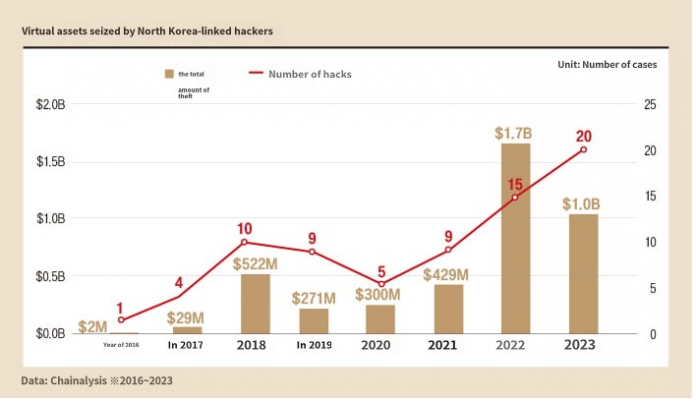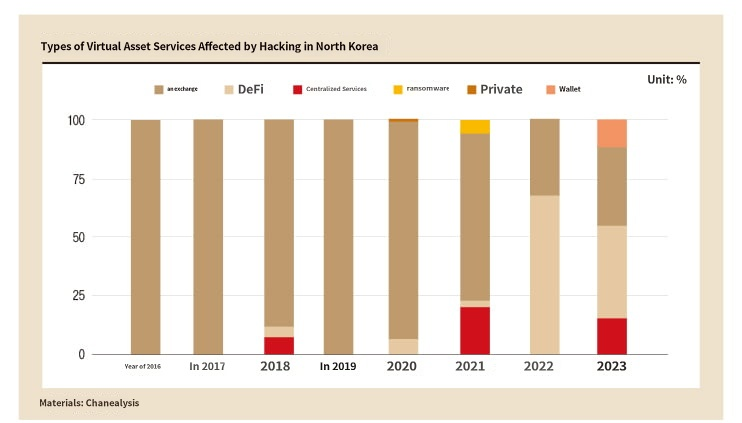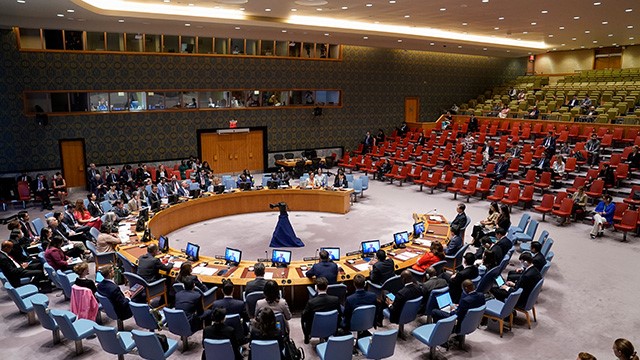
According to a report by the UN Security Council’s Sanctions Committee, North Korea is described as “the most active cyber thief globally,” with its cyber attacks on virtual assets last year alone amounting to $750 million (approximately 1 trillion KRW). This accounts for half of its total foreign income and 40% of the funds required for the development of nuclear weapons and weapons of mass destruction (WMD). North Korea’s pivot from traditional revenue-generating methods to the cyberspace marks a new threat to the international community.
Experts point out the evolving pattern of North Korea’s cyber attacks. In 2022, the amount of virtual assets stolen by hacking reached a record high of $1.7 billion (approximately 2.3 trillion KRW), but in 2023, despite the highest number of attacks recorded at 20, the stolen asset size decreased by about 41% to $1 billion (approximately 1.3 trillion KRW). This suggests that as virtual asset platforms have strengthened their security measures, North Korea has expanded its attack range to a broader target field.

The international community is actively taking steps to counter North Korea’s cyber threats. The United States, South Korea, and Japan have imposed sanctions on cyber activities, prioritizing the eradication of virtual asset theft. Additionally, the virtual asset industry continues to innovate security policies and adopt technologies to combat cyber threats.

Despite the security vulnerabilities in the virtual asset industry, North Korea’s sophisticated cyber-attack techniques continue to pose a threat. Therefore, cooperation among international communities and ongoing efforts by virtual asset platforms to enhance security are urgently required. North Korea’s cyber attacks extend beyond mere financial gain, posing a serious threat to international security, necessitating heightened vigilance and response from the global community.


![[November]Uptober No More](https://coinhubkorea.com/wp-content/uploads/2025/10/Whisk_d78880efb01a730907f4be201effefe1dr-1-324x235.jpeg)



